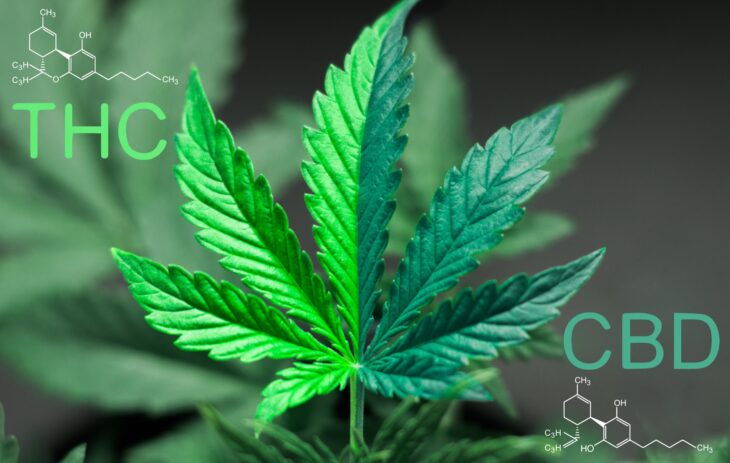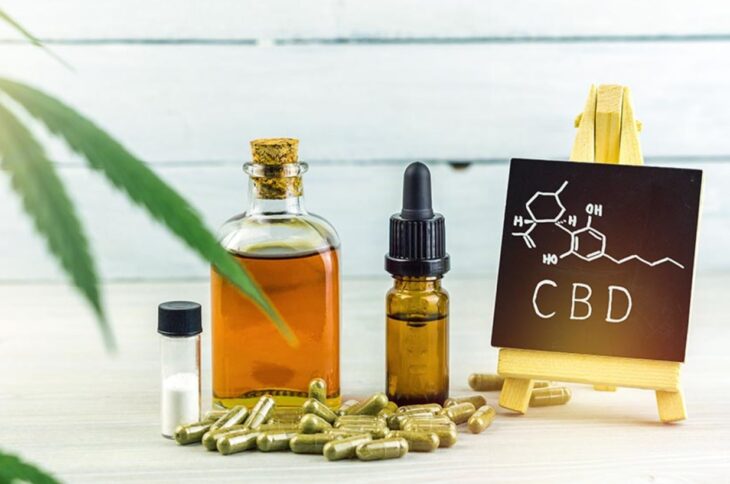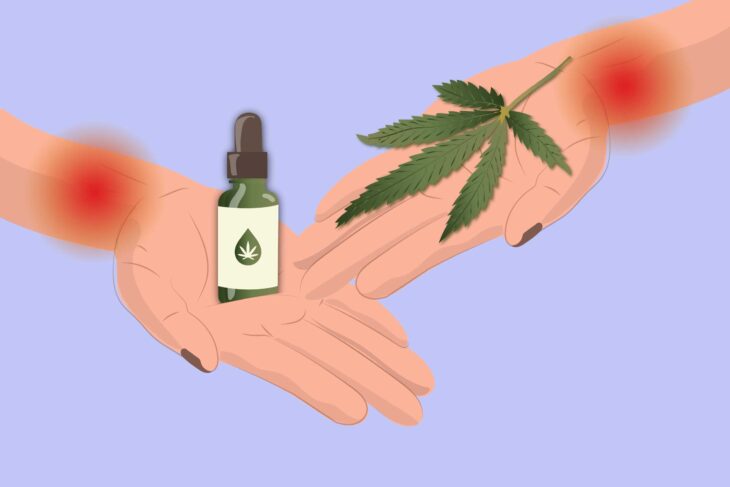CBD has experienced a rapid rise to prominence across the last few years, with attention drawn from the media and consumers alike. Despite this increased media coverage, there are still a number of inaccurate myths that continue to be peddled regarding the benefits, uses and side effects of CBD.
The fastest growing CBD company in the UK, Cannacares, have taken a stand against this misinformation. Rather than aggressively flogging products to customers, they have taken the approach of education. Through providing a direct pathway to affordable and accessible natural treatment in the shape of cannabis, Cannacares’ aim to is to put the power of healthcare back in the hands of the individual.

Source: liwts
Contents
What is CBD?
CBD or cannabidiol is a non-psychoactive substance derived from hemp or marijuana. CBD is one of 113 phytocannabinoids that are found in the common hemp plant. It is a close cousin of THC or tetrahydrocannabinol, but unlike THC it does not has any intoxicating effect on the person. THC is responsible for making you feel the “high” that is typically associated with smoking cannabis. On the contrary, CBD is completely safe to consume and does not have any psychoactive effects on the user.
CBD was first isolated from cannabis in 1940 by the American chemist, Roger Adams, using an ethanol extraction method. In the years since, the versatile cannabinoid has been studied by a multitude of scientists, doctors, and researchers across the world. With each passing day, we are slowly learning more and more about its medicinal and therapeutic properties.

Source: dinafem.org
How is CBD different from THC?
Both CBD and THC are derived from the same plant and have an almost identical chemical structure of 21 carbon atoms, 30 hydrogen atoms, and 2 oxygen atoms. You may be wondering why they have different effects on the human body, despite being comprised of the same components. The answer to this intriguing question lies in the way atoms are arranged in these two substances. The differing atom arrangement is responsible for the different effects of both these psychoactive substances on the human body.
Both THC and CBD interact with our endocannabinoid system to produce a plethora of effects. While THC binds quite strongly with the CB1 receptor, CBD binds very weakly with the CB1 receptor and needs THC to bond with CB1. When THC binds with the CB1 receptor, it produces the ‘high’ typically associated with the consumption of cannabis. Conversely, CBD does not produce such an effect and is known to help with anxiety, depression, pain relief, and a host of other medical conditions.
Another key area where the two aforementioned phytocannabinoids differ from one another is their respective legal statuses. Due to obvious reasons, THC is very tightly regulated and is classified as a Class B controlled substance in the UK. CBD on the other hand is lightly regulated when compared with THC and most jurisdictions, including the UK, have legalized its sale and consumption in recent years. Current UK regulations allow one to grow, sell, and consume CBD if it is derived from specific strains of hemp that have less than 0.2% THC content.

Source: Greencamp
What are the Benefits of CBD?
CBD has been studied for a long time for its effects on a variety of ailments and health conditions including depression, anxiety, chronic pain, fibromyalgia and epilepsy. Many studies have confirmed the health benefits of CBD for several of these conditions. CBD is also useful for a variety of conditions that involve the central nervous system. This is because CBD is able to impact the signals sent to the brain by a variety of organs throughout the body.
In other words, CBD can alter our perception and feelings for various conditions such as pain. This is possible because cannabidiol can essentially block the pathway of the specific neurotransmitter responsible for pain. The feeling of pain is then dramatically reduced for the user.
One notable meta-analysis of existing medical studies that looked into the reduction of chronic pain through CBD, was conducted in Serbia, in 2018. Vucković, Srebro, Vujović, Vučetic and Prostran (Cannabinoids and Pain: New Insights from Old Molecules) found that, while further study is needed, particularly in humans, there is undoubted efficacy in CBD when it comes to a therapeutic strategy for pain treatment.
CBD is also well known for reducing inflammation, swelling, acne, anxiety, and stress. Several studies conducted by researchers across the world have highlighted the potential benefits of CBD for these health conditions, alongside a host of others that have not been mentioned in this article.
Anecdotal and preliminary evidence has so far been overwhelmingly positive. For example, a 2011 study by Ruiz-Valdepeñas, Martínez-Orgado, Benito et al (Cannabidiol reduces lipopolysaccharide-induced vascular changes and inflammation in the mouse brain: an intravital microscopy study) looked into the antioxidant and anti-inflammatory properties of CBD in relation to mice. They found that CBD prevented LPS-induced arteriolar and venular vasodilation. CBD also eliminated LPS-induced increases in tumour necrosis factor-alpha and cyclooxygenase-2 expression. In other words, the data collated highlighted the efficacy of the anti-inflammatory and vascular-stabilising properties of CBD.
For now, the novel nature of CBD when it comes to mainstream medical interest has meant that research is limited. As an industry, we must dedicate time and effort to building on this existing research and solidifying the base that currently exists through further, more varied study.

Source: creakyjoints.org
Therapeutic and Medicinal Uses of CBD
Cannabis has been used for medicinal purposes for millennia. There is evidence that suggests the use of cannabis among ancient civilizations over 2,000 years ago. Although the modern compound that we know as CBD was only discovered in 1940, people have been aware of the medicinal properties of hemp and have used it for a wide variety of purposes over the ages. In recent years, CBD has once again become the focus of attention for scientists, doctors, and researchers who are looking for new drugs and compounds to combat ailments that are still untreatable.
Drug regulators in several jurisdictions have approved a few drugs that use CBD as an active component for treating several conditions such as epileptic seizures, and multiple sclerosis. Epidyolex, a CBD derived drug is currently available for patients suffering from two rare forms of Epilepsy: Lennox-Gastaut syndrome and Dravet syndrome. Additionally, Sativex, another CBD derived drug has been available in the UK since 2010 for treating severe cases of multiple sclerosis.

Source: dailycbd.com
Conclusion
CBD can be helpful for treating or managing several health conditions and ailments, some of which may not have any alternative treatment. Researchers have been studying CBD, along with other substances derived from cannabis for its health and medicinal benefits. However, we know that a great deal more is required in order to make more substantiated health claims.
Most people start their search for CBD products online and you can easily find a CBD shop in the UK that will allow you to buy CBD online. It is important to consider a number of aspects prior to purchasing, however. For example, the license associated with the online CBD store is always paramount to any form of legitimacy. There are a number of rogue operators in the UK and across the world, so it is important to weed out such chancers. This will no doubt be accelerated upon the advent of the Novel Food Regulations, implemented by the Home Office on 31st March 2024.
Furthermore, many CBD products either contain less CBD than specified on the label or may even have higher CBD content than what is suitable for consumption. It is also important to carefully study the source of the CBD as only CBD derived from specific blends of hemp can be sold in the UK and the THC content in the source plant must be lower than 0.2% as otherwise the product may be illegal. It is also important to seek out an independent lab report, to ensure the absence of harmful substances such as heavy metals and pesticides. When buying CBD online, be sure to always check reviews as well as independent product documentation!
